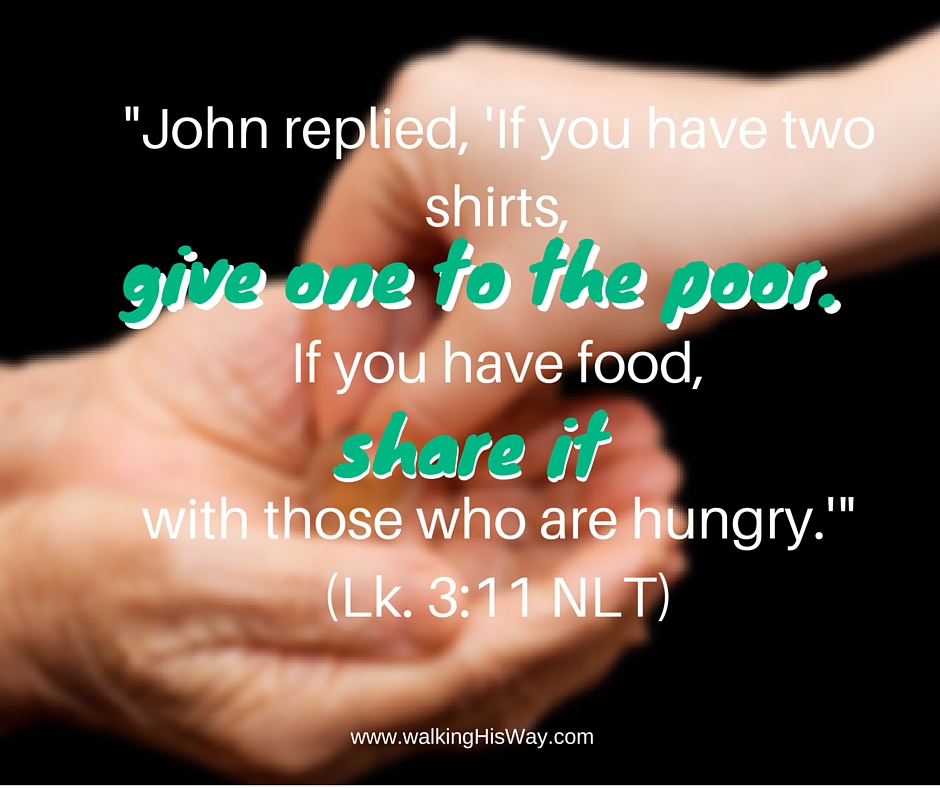 Luke 3:11 “John answered them, ‘The person who has two tunics must share*~ with the person who has none, and the person who has food must do likewise.’”
Luke 3:11 “John answered them, ‘The person who has two tunics must share*~ with the person who has none, and the person who has food must do likewise.’”
Paul wrote, “The love of money is the root of all evil” (1 Tim 6:10), and generosity—-not getting and hoarding—-is one of the clearest signs of a transformed life and a Christlike attitude.
John had been preaching to the crowd to bring awareness of their sinfulness and to generate repentance from the false idea that they were good because they were religious. They did not practice the disciplines that showed that God’s love had changed their lives.
None of John’s teachings were meant to result in the acquisition of any special merit or grace: righteousness is only granted on the basis of a heart–based faith in the grace of God (Eph 2:8–-9).
Three groups of people asked John, “What shall we do [to demonstrate faith and repentance]?” (Luke 3:10, 12, 14). To the crowd, he said to share with the needy. To the tax collectors, he said to be just and collect “no more than is appointed to you.” Finally, to the soldiers, he said to not practice intimidation or make false accusations and to be content with their salaries.
The lesson in our text is not restricted to a “tunic.” When God providentially brings needy people into your life and you have an extra “tunic”—-or anything else—-your new spirit should respond with a generous, wise, and voluntary sharing of resources.Paul gave us the principle for the spiritual gift of giving: “If your gift is . . . giving, give generously” (Rom 12:8NLT). Generous believers become the models for the body of Christ and demonstrate the joy of giving.
We often want to be appreciated for what we give out of pride or ego. This attitude feeds the flesh by attempting to satisfy an expectation of immediate recompense, even if only by way of appreciation.
If your emotional response is anger or hurt feelings when there is little or no appreciation or acknowledgement for a gift, then you know the flesh is seeking satisfaction.
If you are giving out of love, then your motive is purely to meet someone else’s need, not your own.
“Lord, my selfishness so easily shows itself when my rights or my possessions are threatened. Teach me to be giving rather than clinging and to be a servant rather than an egotist who wants everything for himself.”
